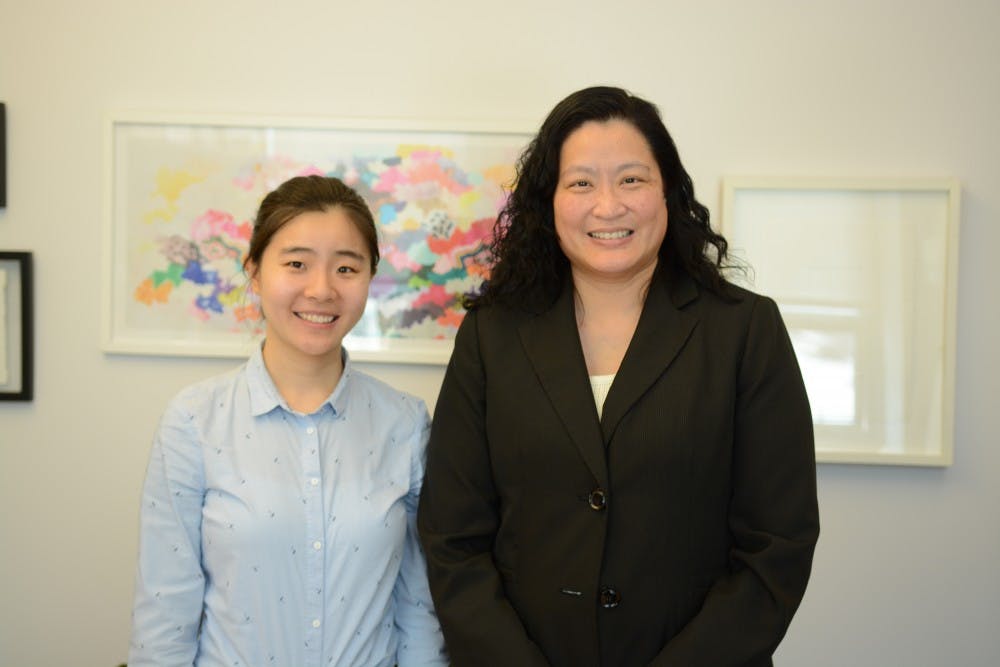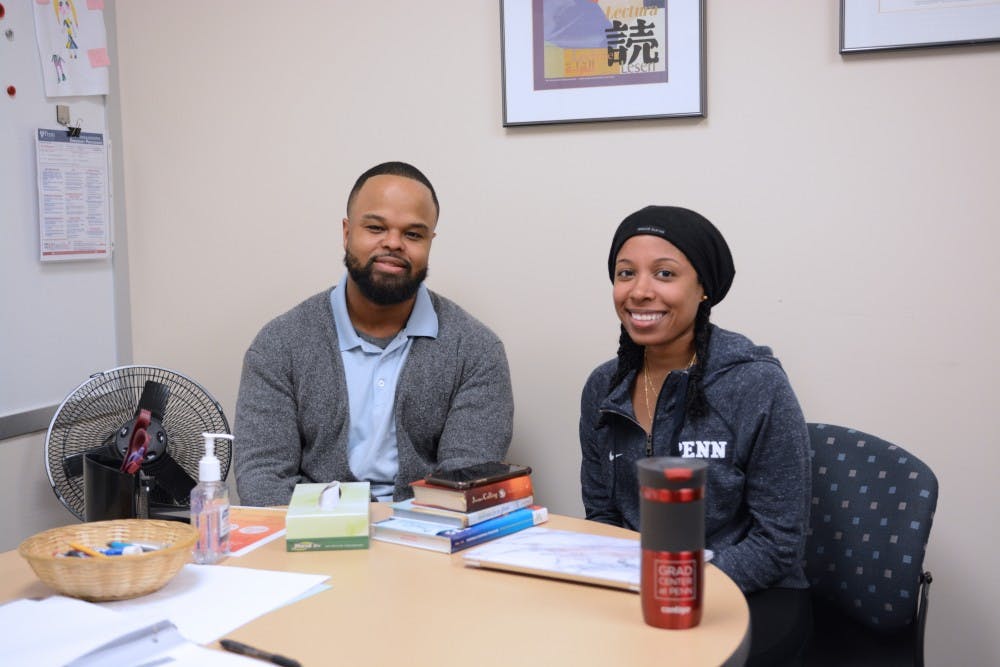
Jinxi Yu (left) GSE Wellness Coordinator, and Ann Tiao (right), Assistant Dean of Student Services, hope the program will help students find a support system within GSE.
Credit: Emily XuPenn's Graduate School of Education now offers peer group support sessions to promote wellness among graduate students.
The new initiative, which held its first session on March 14, was designed by 2018 GSE graduate and GSE Wellness Coordinator Jinxi Yu. Yu said the group will meet weekly on Thursdays to discuss interpersonal relationships, identity, personal growth, and career exploration. Because space is limited, interested students are encouraged to register by emailing Yu.
The reasoning behind the initiative, Yu said, is that students find it easier to open up to peers than to outside professionals from Penn Wellness services. She also hopes the program will help students find a support system within GSE.
The program comes amid growing concerns about mental health within Penn's graduate student population. In a Graduate and Professional Student Assembly survey, whose results were released in September 2018, 43 percent of respondents reported being “so depressed it was difficult to function,” and 70 percent reported “feeling overwhelming anxiety.” These concerns informed the creation of wellness initiatives specifically targeted at graduate students, such as the Penn Franklins peer support group.
GSE Assistant Dean for Student Services Ann Tiao said the GSE group sessions are part of a larger pilot program focused on student wellness within the school. Tiao said in the past, the GSE promoted student wellbeing through scattered programming, including monthly bulletins and study breaks with puppies. But when Tiao became the assistant dean for student services in 2018, she made it a priority to develop a strategic, coordinated approach to student wellness.

The group will meet weekly to discuss interpersonal relationships, identity, personal growth, and career exploration.
GSE is also collecting data, such as the number of student leaves and withdrawals, to better understand the challenges students face and identify services that can be created.
“We know a lot [about] how we can make things better, we just haven’t actually implemented it,” Tiao said. “We need to bridge that gap. I inform students about how I do that on my job and they inform me of their experiences, so it’s a symbiotic relationship.”
Yu said the peer support sessions are also designed to create a sense of community within the GSE. She added that under GSE Dean Pam Grossman’s “One GSE” focus, the school tries to develop programs that help students meet new peers, as students in different programs within the school often do not interact.
“I can count on one hand the number of times I have seen an executive doc student," first-year education doctoral candidate Daris McInnis said.
The program is also open to undergraduate students who are taking GSE courses, Tiao said.

Daris McInnis (left), first year education doctoral candidate, and Latricia Whitfield (right), EdD candidate and doctoral student.
Administrators also emphasized the role of educators and the importance of promoting their students' wellness.
“Education is a field like no other,” McInnis said. “We are directly responsible for the well-being and development of children, and directly blamed when things like the curriculum that we don’t have control over or access to don’t work.”
“To be there for my students, I had to be my best,” he added.
Tiao said the pilot program, beyond helping students in distress, is intended to reach them before that point.
“We focus too much on the tragedies,” Tiao said, adding that it is important to create a welcoming, comfortable community where students can open up and talk to each other.
Yu said she is trained to direct students to the resources they need, including Counseling and Psychological Services, the Weingarten Learning Resources Center, and GSE-specific services like one-on-one counseling, group counseling, and mental wellness workshops.
The new peer group support sessions and GSE’s new emphasis on wellness comes at a time when Penn is increasingly focusing on student mental health. In April 2018, Penn President Amy Gutmann announced the creation of the position of Chief Wellness Officer and the introduction of structural changes to decrease wait times and improve service in CAPS.
“We’re all in education,” Tiao said. “Our goal is to [have] a larger impact. This program is about teaching a larger set of students the ability to take on skills for life.”
The Daily Pennsylvanian is an independent, student-run newspaper. Please consider making a donation to support the coverage that shapes the University. Your generosity ensures a future of strong journalism at Penn.
Donate







